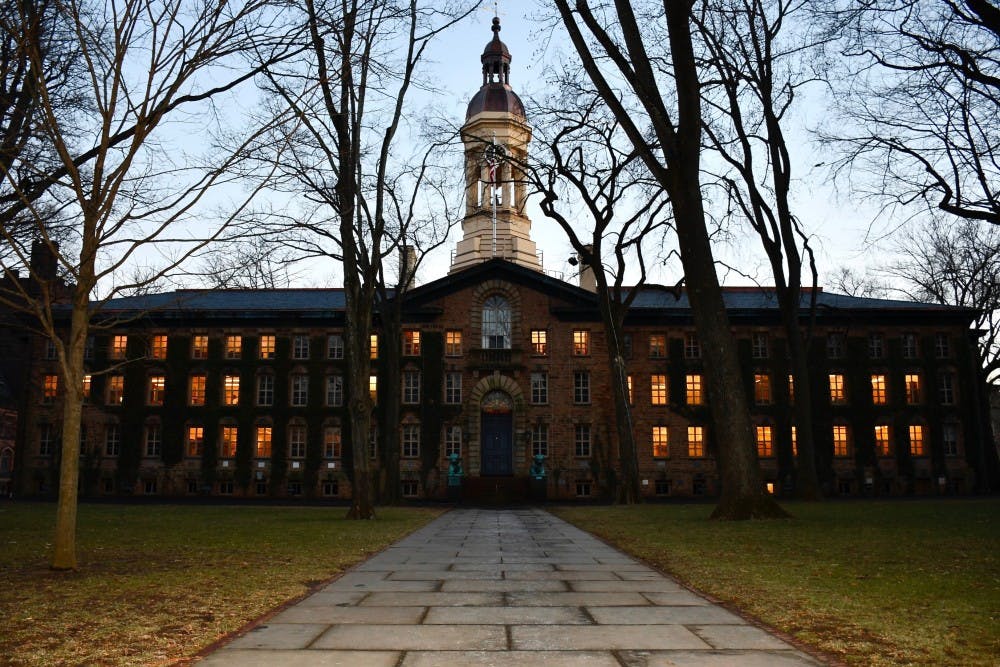When I first arrived on campus, I was afraid to discuss politics. It wasn’t that I was uncertain of my beliefs, but Princeton students have a formidable reputation. Coming from the dirt roads and cornfields of the Midwest, having never dreamt of attending an Ivy League university, I knew I was entering the lists.
The most important thing I’ve learned thus far from the journey isn’t that this was an unwarranted fear. If anything, my initial forays to the debate hall only reinforced my concerns. No, the most important lesson I’ve learned is to not fear being wrong. I learned I wasn’t afraid to confront others, but I was scared to listen to what they actually had to say.
For me, attaining this wasn’t a comfortable process; it required a level of vulnerability, an exposure to danger. It meant standing center stage with all eyes on me and allowing others to painfully dissect, reason by reason, why I felt differently. However, after braving the trials that tore all these things away I was left facing all that I had: my beliefs.
Standing there alone, I came to understand the most important facet of my adventure yet: that my beliefs must be subject to change. I understood that we hold onto the collection of our beliefs, not that our beliefs hold onto us. We cling tight to the innocence of our beliefs because we think they make us who we are.
I have witnessed family members, friends, and acquaintances defend a lie when confronted with the truth and throw down the gauntlet only to shirk away in order to shelter a belief. More and more discussions become merely about winning, with everyone looking for the Ben Shapiro moment in order to roll the Thug Life video they perceive will play before the eyes of any onlooker.
You can never allow yourself to get caught saying, “I was wrong,” in front of the bleachers of everyday life in modernity. Saluting your team’s colors has left us bereft of any ability to create change. What does it mean when defending your team is more valuable than seeking the solution? Why, then, do we even have a team?
We can armor ourselves with selective statistics and stab at each other with self-serving points. But, after hacking away, the core principles you hold are from what your beliefs are derived.
It is your superficial, yet necessary, beliefs that guide your interactions in the world. Your core principles are the reason why they even exist to begin with. These basic principles are what you envision for us all — human rights, our responsibilities to one another. They are far bigger than you as an individual and are worth a bit of embarrassment in order to get promoted.

Neither cocooning them from the outside world, nor ignoring the claw marks left by others make our beliefs any stronger. Rather, they become tempered as we release the fear of change and allow them to interact with the world. They will adapt to survive or become replaced in order to continue serving the principles we envision for the world. The giant looms before you, victory means the lives of thousands. You pull back on the slingshot and it snaps. Do you run?
These are the unchanging principles that you and I and everyone else have. And so, we must approach every conversation as if embarking on a journey from which we have something to learn. Our trials together then become our tempering. Once there, we have nothing to fear from each other or from ourselves.
One thing is certain: I will be wrong again. I’m sure sometime soon I’ll hand my phone again to my wife to make sure I didn’t put my foot in my mouth. She has a finesse for telling me that I’m wrong that no one will ever match. I now look forward to that inexorable moment when I’m forced to my knees before the altar of understanding. What I’m afraid of presently is that there will be no one there with their head bowed beside me.
Why defend a lie or shirk away from the necessary truth rather than change a belief? When the hallowed becomes hollow we cannot defend it as a piece of ourselves. What, then, is a belief?

Tyler Eddy is a junior astrophysics concentrator from Windsor, Ontario. He can be reached at tjeddy@princeton.edu.








